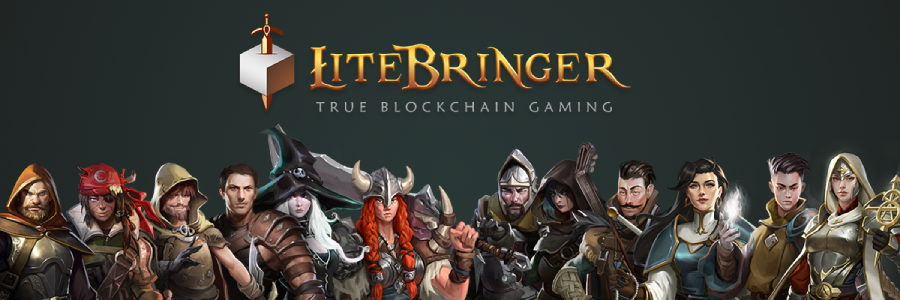Games on centralized servers have many limitations and vulnerabilities we were able to overcome with LiteBringer. Here is how and why we did it!
So far the vast majority of online games follow a centralized model. In other words, all related data is stored on a server over which the game administrators have full control. Typically, this includes account information and server history. Therefore, all events and in-game assets like collectibles, items and virtual money are also stored on the server.
Games on centralized servers have many limitations and issues, which may include:
- Game shut down
- Undeserved ban of accounts
- System infiltration by hackers
- Server malfunction due to technical issues
- Lack of transparency of game mechanics and rates
- No real ownership of accounts and items
- Manipulation of the game economy by developers and administrators
In other words, it is the game companies who have the control. Fortunately, games using blockchain technology can eliminate most of these problems. This does not mean that every game utilizing blockchains has solved these problems. Numerous casinos and games are using blockchain technology more like a gimmick for traditional infrastructures.
One of the most famous games Cryptokitties tokenizes its assets and secures them with smart contracts on the Ethereum blockchain. Nevertheless, it is a centralized server that interprets what the cats look like and how you can breed kitties. If that has a malfunction or is permanently shut down, assets can no longer be interpreted and lose all value.
What LiteBringer is doing differently
The main idea is to give all power back to the players. Each player should be in full control over their accounts and digital assets and free to trade them at any time whichever way they want to. Consequently, having a central server involved is not an option for LiteBringer.
Blockchain based systems can be used to verify and secure all sorts of digital data, including in-game history, digital items and assets. If using these advantages to the fullest, a central server is more of an option than a must-have.
Unlimited gaming
Online games existing on a centralized server only function for as long as the servers are running. When the developers abandon the project or go bankrupt, the servers are shut down. This would be the end of a game. In that case, players who have invested in the game or bought some assets, lose everything.
A fully decentralized game exists for as long as there is a single miner in the network. Even in a thousand years, the network every action of every player is conserved and can still be interpreted, making the game practically immortal.
Fair playing ground
Blockchain networks use different consensus algorithms to ensure the integrity of the blockchain. The main objectives of the consensus algorithm are to prevent double spending and to prevent unwanted forks.
Utilizing this in gaming will help prevent both cheating and hacking. Using blockchain technology, it is basically impossible to manipulate the game state. For example, modifying a client to have a certain advantage won‘t work. Every action is interpreted by all clients, so they also know the game state of all other players. Every asset obtained through manipulation simply doesn‘t exist for other players.
Real ownership
As mentioned above, games fully operating on blockchain technology allow players to have permanent ownership and to be in full control over their in-game assets. These can be in-game cards, skins, equipment or characters. Regardless of the asset type, most blockchain games link assets to non-fungible tokens (NFT) on the blockchain, such as the ERC tokens.
LiteBringer uses a different method and uses tokens only for trading purposes. Players create assets by carrying out missions. Every action is registered in the blockchain and interpreted by all clients simultaneously. This means that the creation and ownership of an asset is validated in public. There is no need for a token.
Decentralized marketplace
In traditional games, the producers have the power to manipulate the economy. They can lock or bind in-game items, making them untradeable.
In contrast, games solely built on a blockchain network can include a decentralized, safe marketplace. Due to every action being written in the blockchain and interpreted by all clients, neither a third party to secure the trade, nor trust between players is required.
